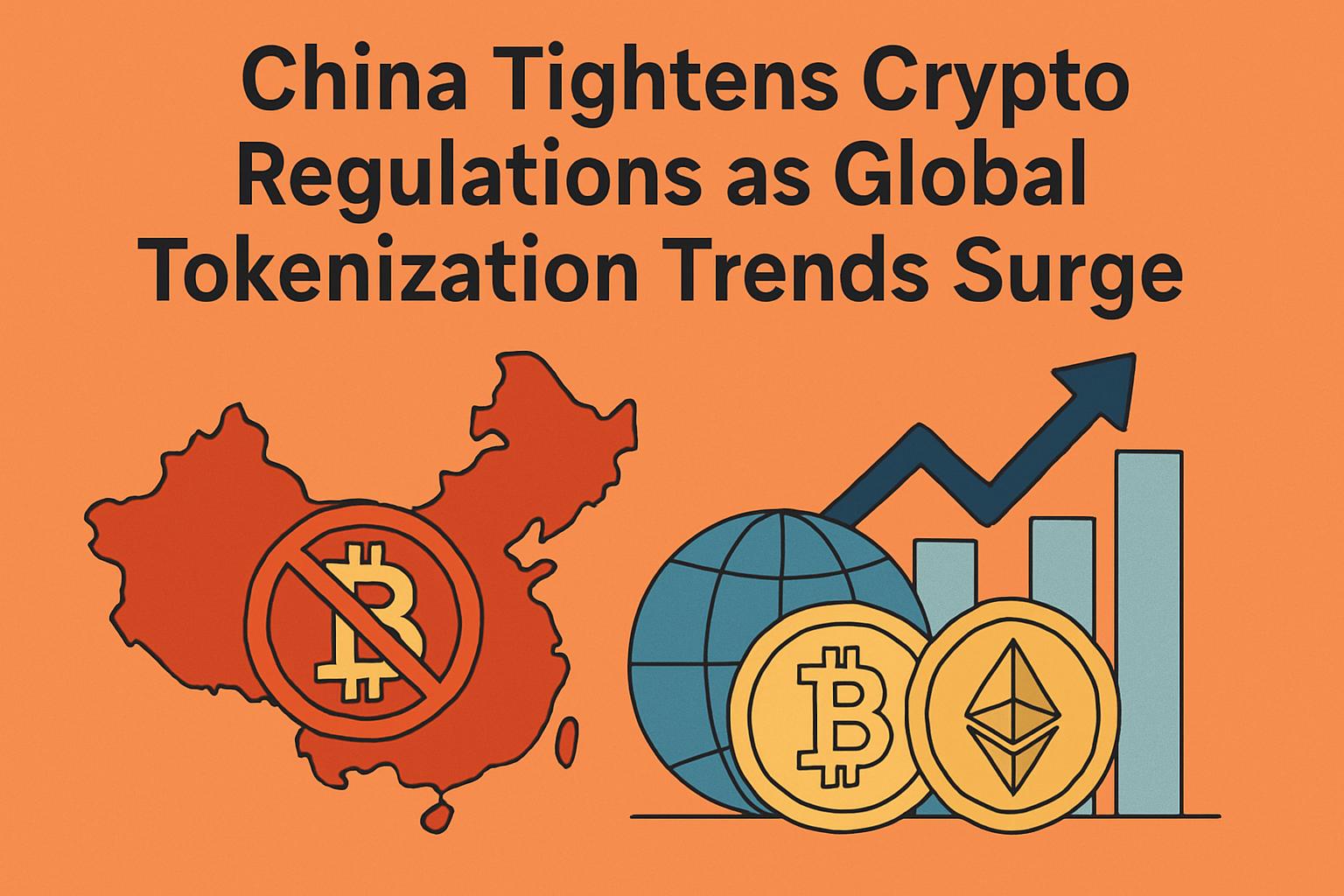In a world where financial markets are rapidly integrating blockchain technology, China’s recent decision to tighten crypto regulations diverges sharply from the global trajectory. The China Securities Regulatory Commission (CSRC) has advised major Chinese brokerages to halt Real World Asset (RWA) tokenization activities in Hong Kong, citing risk management concerns. This move underscores China’s cautious stance on crypto regulation, in stark contrast to the enthusiasm seen internationally.
China’s Conservative Approach: Halting RWA Tokenization in Hong Kong
According to Reuters, the CSRC has recently instructed several large Chinese brokerages to pause RWA tokenization efforts in Hong Kong, though the duration and full scope of this pause remain unclear. Hong Kong has actively been promoting policies to tokenize real-world assets, envisioning itself as a key crypto financial hub in Asia. Meanwhile, in Beijing, discussions about introducing a yuan-backed stablecoin are ongoing, yet progress remains conservative.
Beyond RWAs, stablecoin-related activities have also become a regulatory focal point. As early as August, Beijing requested major brokerages to stop publishing research supporting stablecoins, aiming to cool the retail market enthusiasm sparked by Hong Kong’s new regulations.
Restricting Access: Chinese Nationals Face New Challenges
Adding further complexity, Chinese nationals now face hurdles when attempting to open accounts with overseas brokerages. Platforms like Futu and Tiger Brokers have amended their registration policies, disallowing account creation with foreign work permits or resident documents, effectively raising barriers for mainland investors seeking international market participation.
Global Momentum: The Rise of RWA Tokenization
Despite China’s cautious approach, RWA tokenization is witnessing accelerated growth globally. In the United States, entities such as Nasdaq and BlackRock are exploring tokenized stock trading and ETFs. Similarly, the European Union is advancing its digital euro initiatives, considering blockchain technologies like Ethereum and Solana.
The tokenization market has exploded from an $85 million experiment to a $25 billion industry over five years, highlighting its transformative potential.
Balancing Regulation and Innovation
While China remains wary of pushing its domestic RWA agenda, the global trend towards asset tokenization is undeniable. As international financial institutions and regulatory frameworks continue to facilitate these crypto applications, RWAs and stablecoins are poised to be among the most impactful uses in the coming years.
For China, the challenge will be to strike a delicate balance between managing risks and embracing innovation—a task that will define its engagement in the crypto economy in the years to come.

![[News] Bitcoin at a Turning Point? 10x Research Signals a Bullish Macro Shift Ahead](https://cryptoexplores.com/wp-content/uploads/2025/06/new20250616.jpg)
![[News] Binance Lists $HOME, the Gas-Free, Bridge-Free All-in-One DeFi App](https://cryptoexplores.com/wp-content/uploads/2025/06/news20250617.jpg)